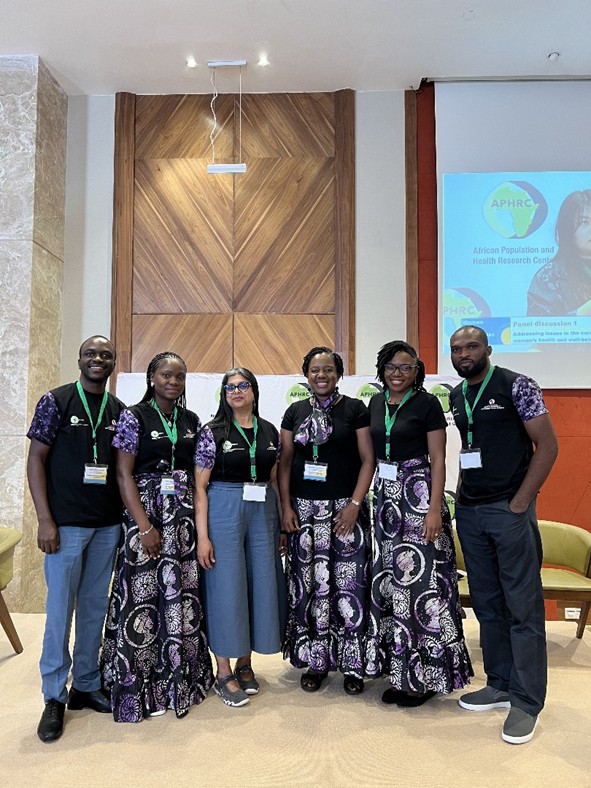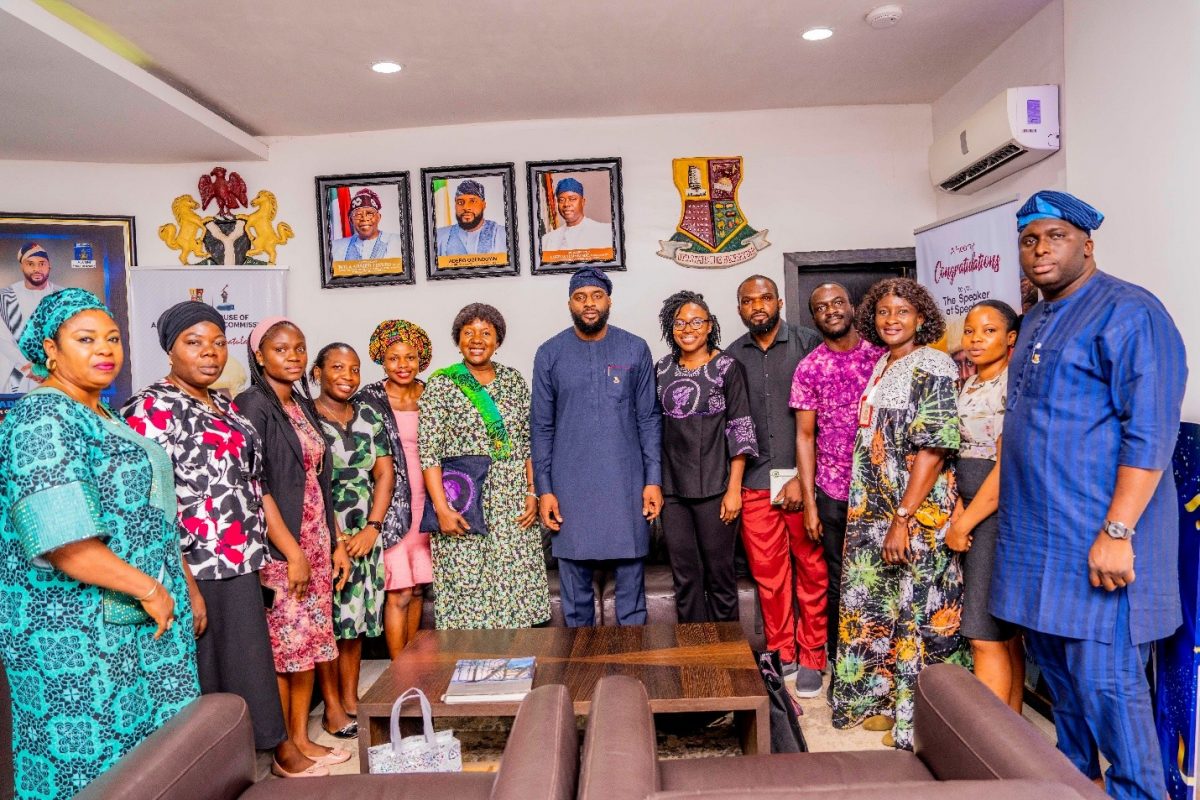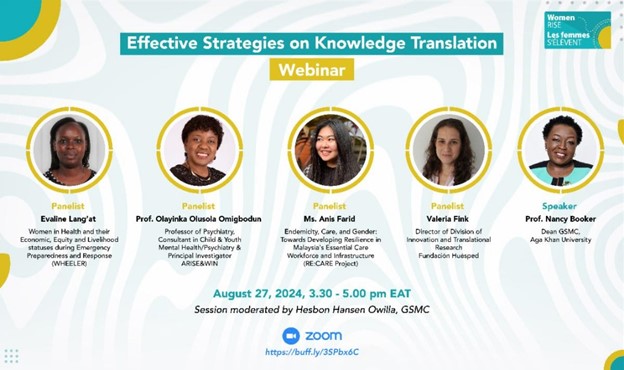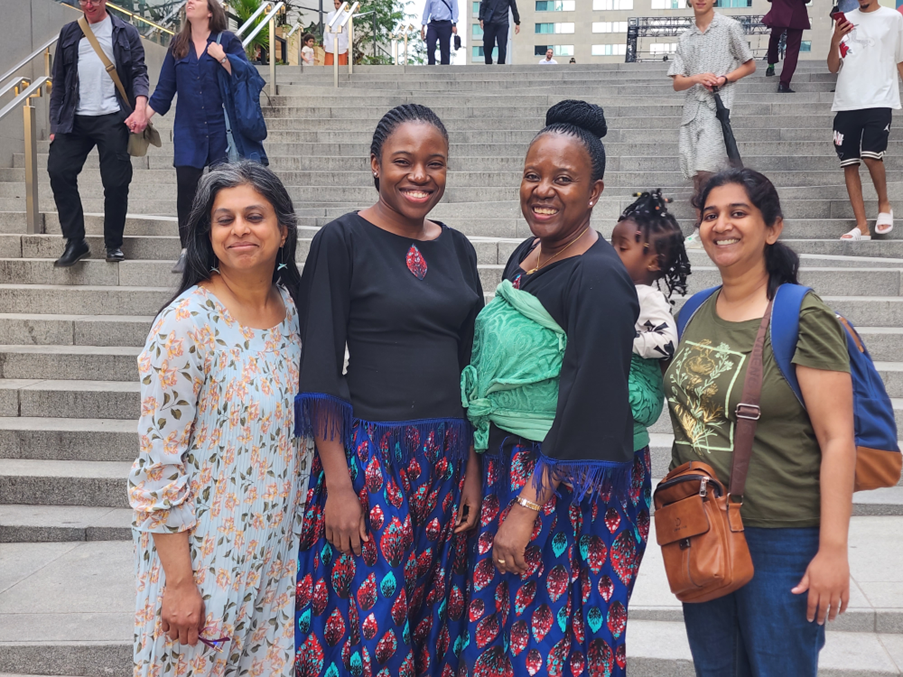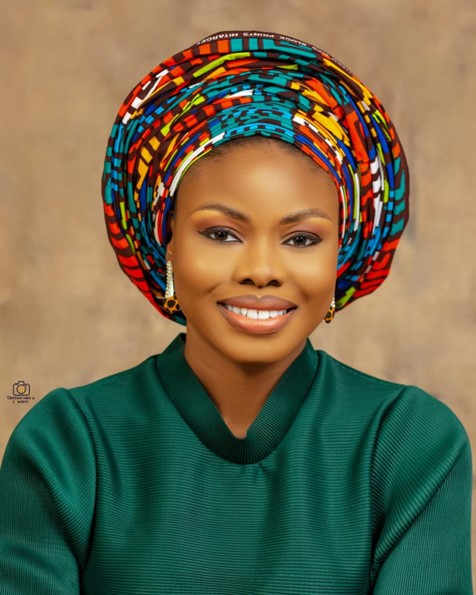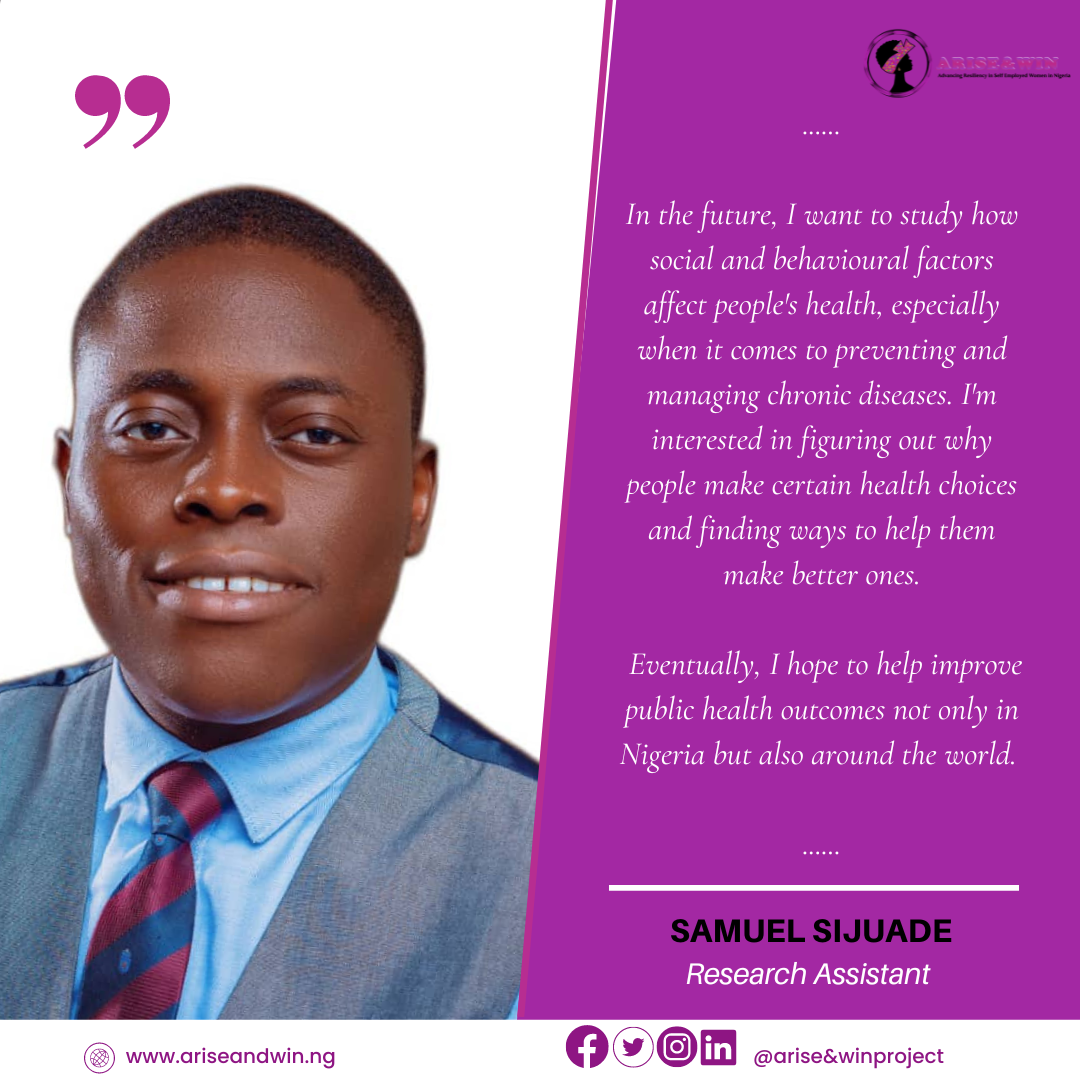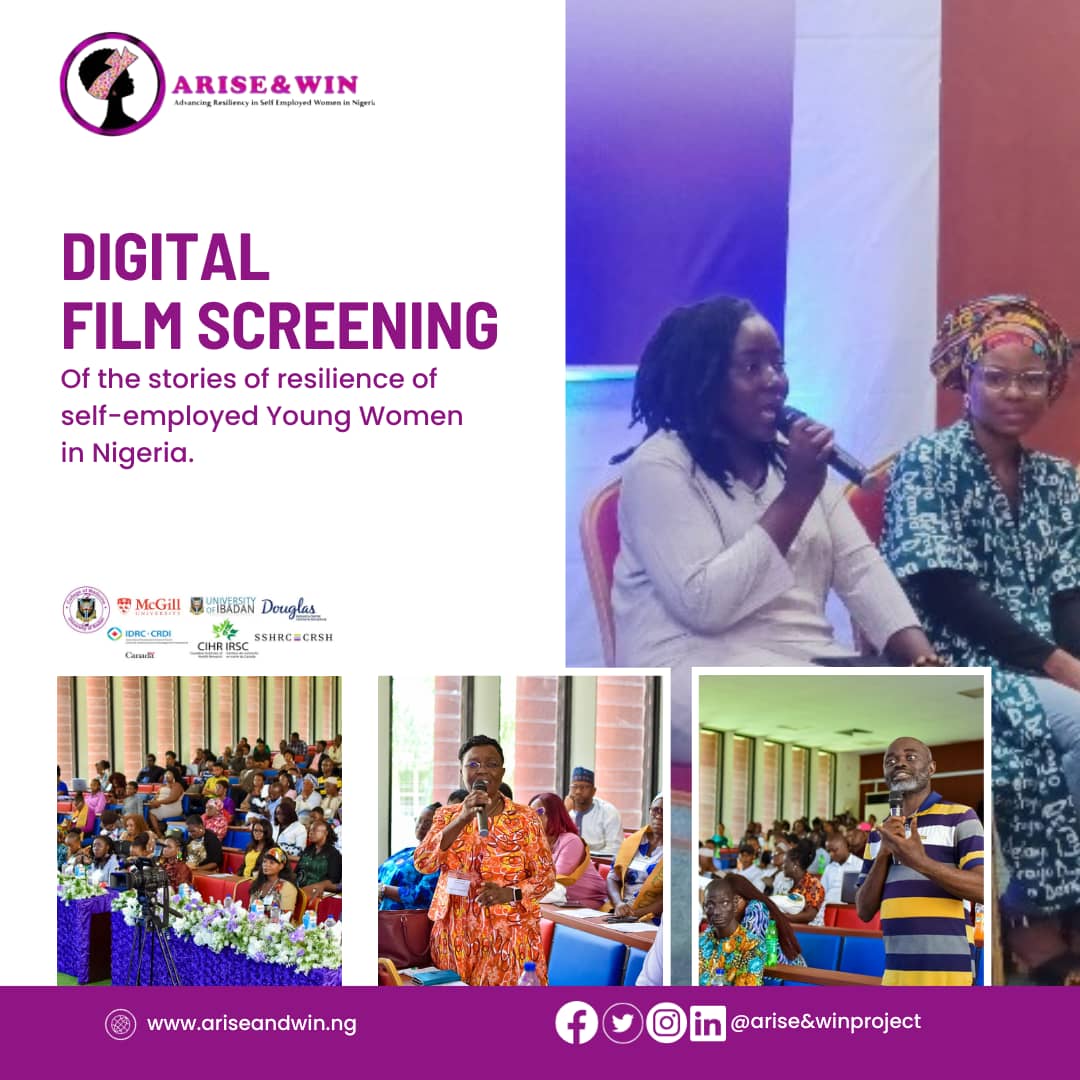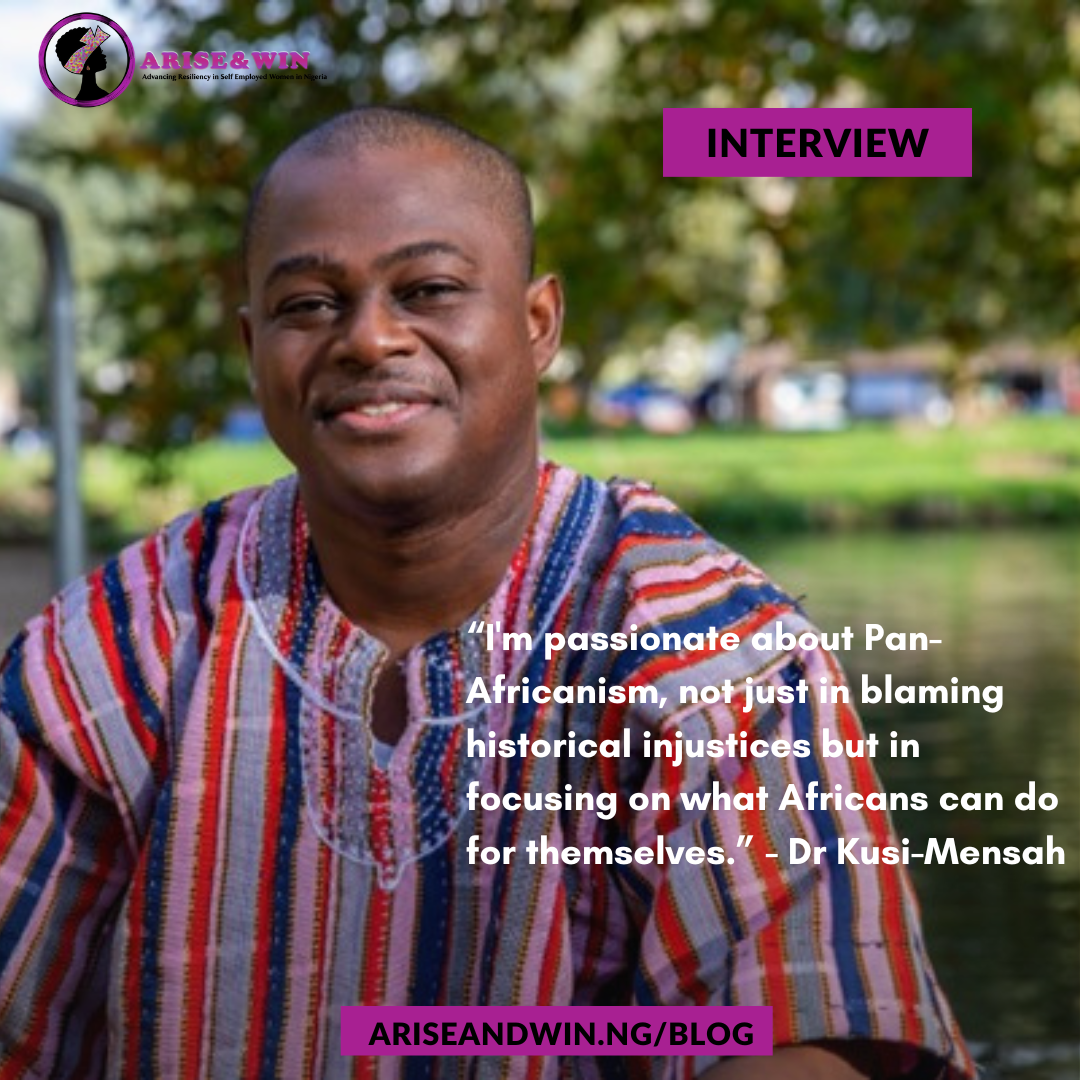Iyeyinka AanuOluwahan Kusi-Mensah is many things to us on the ARISE&WIN team. As the Lead Postdoctoral Fellow, she is a no-nonsense manager who prioritises excellence and integrity in every aspect of our work. She is also a supportive and gentle friend, always willing to lend a listening ear. Her expertise in quantitative, qualitative and interventional methodologies makes her a quintessential researcher, and she regularly leads in-house capacity-building sessions to help the team master essential skills for success in research. Through her leadership and dedication, Iyeyinka not only uplifts the team but also strengthens the ARISE&WIN project’s mission of creating real-world impact.
She has been at the forefront of championing youth and women’s growth and development in the area of holistic wellbeing with a focus on livelihood and work through research and active advocacy. She brings this rare commitment to driving meaningful change, and she lives by the belief that research should shape policies that enhance people’s lives and experiences. Our media team—comprising Oluwaseun Abimbola, the Communications and Research Uptake Manager, and Okeogheneteno Ikime, a Research Assistant on the project—sat down with Dr. Kusi-Mensah to discuss her journey, her passion for youth employment and empowerment, and the impact of the ARISE&WIN project.
Read the full interview transcript below:
It’s good to have you with us, Dr Kusi-Mensah. Could you please give us a brief introduction of yourself with a focus on your educational and research background?
Thank you for having me.
I got my BSc in Social Anthropology and African Studies with a citation in French from Harvard University. Then my Master’s degree was in Sociology from the University of Cambridge, and my PhD in Sociology was also from the University of Cambridge. In terms of research, my interests are in the area of employment issues, specifically youth employment. I’m very passionate about young people in Africa. I feel that there’s so much potential in young people in Africa, and oftentimes they don’t have an opportunity to express that.
Brilliant. Have you always known that is what you wanted to do right from childhood, or was there a eureka moment where you decided, “This is the path I’m going to choose”?
The answer to that question is both yes and no. I say no because I’ve cycled through so many things that I wanted to do since I was young. I don’t think there’s any profession or any speciality out there that I didn’t think of pursuing. I had a very convoluted academic journey, and even now it’s still evolving. I remember when I was young, there was a time I wanted to be a forensic pathologist. There was a time I wanted to be a film director. When I entered Senior Secondary School 1 (SSS1), I couldn’t decide whether to go to arts or to sciences or social sciences, because I loved everything. The advice I got from my parents was that I should just pursue the sciences because if I wanted to go back to the arts later on, I could always do that. So I ended up in science class but I always enjoyed the arts and doing creative things. I used to write a lot of stories and poems. I still do, I just don’t have the time, which is sad, but I still enjoy those things. Fortunately, I’ve always been really good academically, so I did well in the sciences. When it was time to enter university. I wrote the Joint Admissions Matriculation Board (JAMB) exam and did physics, chemistry, and biology but then my exam centre had problems. We were told we cheated. So initially they didn’t release our results and then when they eventually did, we scored really low marks. By the grace of God, I had gotten the second highest marks in Nigeria in my WAEC. Following the issues with my JAMB, my parents encouraged me to do A-levels. For JAMB, I had stated that I was going to do Medicine at the University of Ibadan but for A-levels I suddenly decided to do maths, physics, and chemistry, which leans more towards a career in engineering. Also, at this time during my A-levels, I was fortunate enough to write the SATs and I applied to universities in America. I got admission to many universities with scholarships and that’s how I ended up at Harvard. I never believed it could come true. In fact, I remember when I discovered I’d got in. I was in a bad mood. I don’t know why. And then suddenly my mom told me there was a phone call from Harvard for me. So then she gave me the phone, and I’ll never forget that day, I was on the staircase in our old house when the lady told me “I’ll be happy to let you know that we want to offer you a place in the class of 2016” That was a dream come true for me. At Harvard, I applied to study Environmental Science and Public Policy. So I’d shifted again to something else. Fortunately, Harvard follows a liberal arts model of education, which is something I really love, in that you don’t have to pick a course you’re going to pursue right from the start, and it really allowed me to explore a lot of different things, especially for somebody like myself who found it difficult to decide.
Just a minute… Can you expand a little on the Liberal Arts model?
Liberal Arts is basically where you’re encouraged to explore subjects from diverse disciplines. Some people might say this is also very elitist, in the sense that there’s not a lot of focus on learning practical skills or technical skills, which could also be problematic in terms of finding employment, which is what I study. But the focus of Liberal Arts is more focused on cultivating an educated individual, which also has its advantages in the sense that you develop skills in critical thinking, reasoning, and writing, which to some extent, I think perhaps might even be more important than actual technical skills, because you really learn how to learn, which is what will serve you in life. The latest technological advancements are always changing. Even on the ARISE&WIN project, we’re always having to learn new things every day. And so, the more important thing is knowing how to learn, rather than just downloading information. So basically, the focus of the Liberal Arts is more like a well-rounded education.
So going back to the previous question, I took courses in maths and physics, and I also took French, so I have a certificate in French, I took poetry, I took drama. College is four years, and at the end of your second year, you are supposed to focus on a particular area, but you’re not restricted to that area. It’s called your concentration. So you concentrate on a particular area, but you’re not really limited there. I’d always been curious about what anthropology was, and so I took a class on anthropology in my first year. I loved the approach to thinking about the world and society. I love the whole idea of ethnography, trying to see things from people’s perspective. I’m also somebody that likes to explore the world and travel and thank God I’ve been fortunate to do that a bit. I personally like economic anthropology. Using an ethnographic lens to understand financial systems and economic systems. I started college a couple of years after the financial crisis of ’08. So there was a lot of talk about that. I remember reading an ethnography on Wall Street and I absolutely loved it. The approach to understanding how the culture of banking contributed to the financial crisis. So that’s how I ended up studying anthropology. At the time I was pre-med because in the US, medicine is not an undergraduate degree. I wasn’t sure I wanted to do medicine anymore, so I just decided to drop that and explore other things. And that’s how I ended up studying Social Anthropology and African studies. After that, I was fortunate enough to be sponsored on a travelling fellowship by my university. They gave me a bunch of money to go explore the world and I ended up in Guadeloupe. Guadeloupe is an overseas department and region of France in the Caribbean. While there, I was able to take culinary courses in French cooking and I was also translating books from French to English for Guadeloupean children to learn English. During that period, I was still very fascinated with global economic systems and how the world works, and I kind of knew I wanted to pursue academia. I’ve always been very academic. I like reading and research. But at the end of my undergraduate study, my advisors told me “a PhD is a huge commitment”, which it is. They advised me to take some time off to do other things and really reflect on whether this was something I really wanted to do. So after Guadeloupe, I also came back to complete my National Youth Service year where I taught Maths in a secondary school. I really liked that too, because I like Maths.
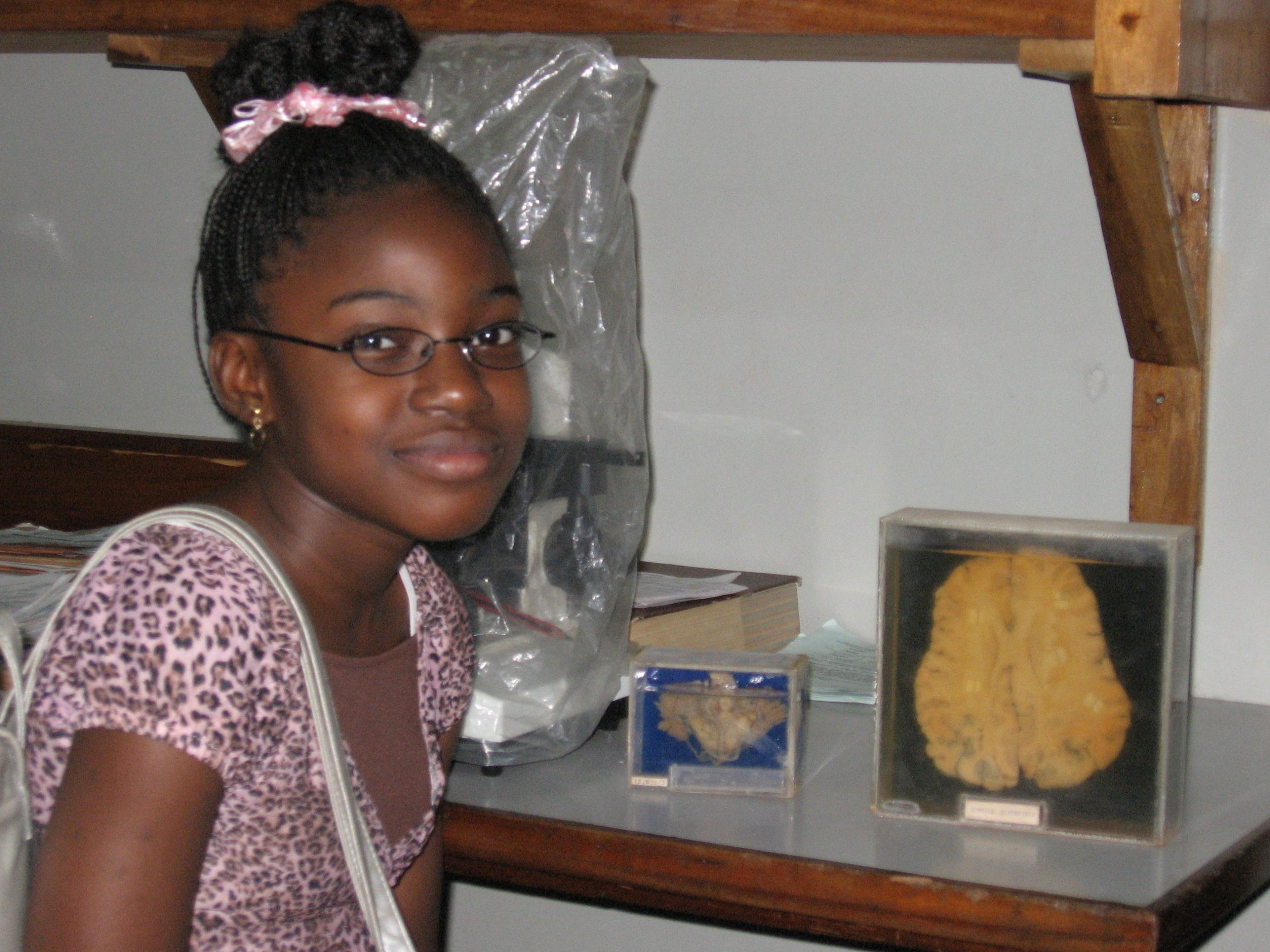
So like I said, disciplinary-wise, I’ve always been all over the place, but in terms of my, like, central core, passion and things that drive me, there has been some kind of continuum. If you notice my email address is I-Y-E-J-P-T, which comes from an assignment in JSS2/JSS3 where we had to develop a website. The website I developed was for my political party, Justice, Peace and Truth. And so that’s where the JPT comes from. My goal was to be the President of Nigeria. I really felt like there’s just so much potential in Nigeria that’s not being fulfilled. For example, reading and learning have always been cultivated in my home, and I know so many people out there don’t have that, so that led to me starting my Readers Are Leaders reading club project in a low-income community not too far from my house after secondary school. I just wanted to give back. I also started a free summer school for low-income children in a mission site owned by my church, The Anglican Church of the Messiah, at the end of my first year of college. More people joined me from my church, and so did my brother and my cousin, and it has grown to become a year-round school now run by our church, the Anglican Church of the Messiah Mission School in Aalagbagba. I’ve always been very reflective about social issues, especially regarding young people. A lot of young people in Africa are not given that opportunity to fulfil their potential, whether it’s in terms of education, in terms of investment in health, in terms of the employment opportunities they are given and so on. And so I think what I do in youth employment is just an expression of that. So to answer the question of whether I always knew I was going to do this, no, because I was all over the place career-wise but yes in the sense that I can see that central thread of always caring a lot about how we can improve our society, and especially make it a more fair and equitable place for young people.

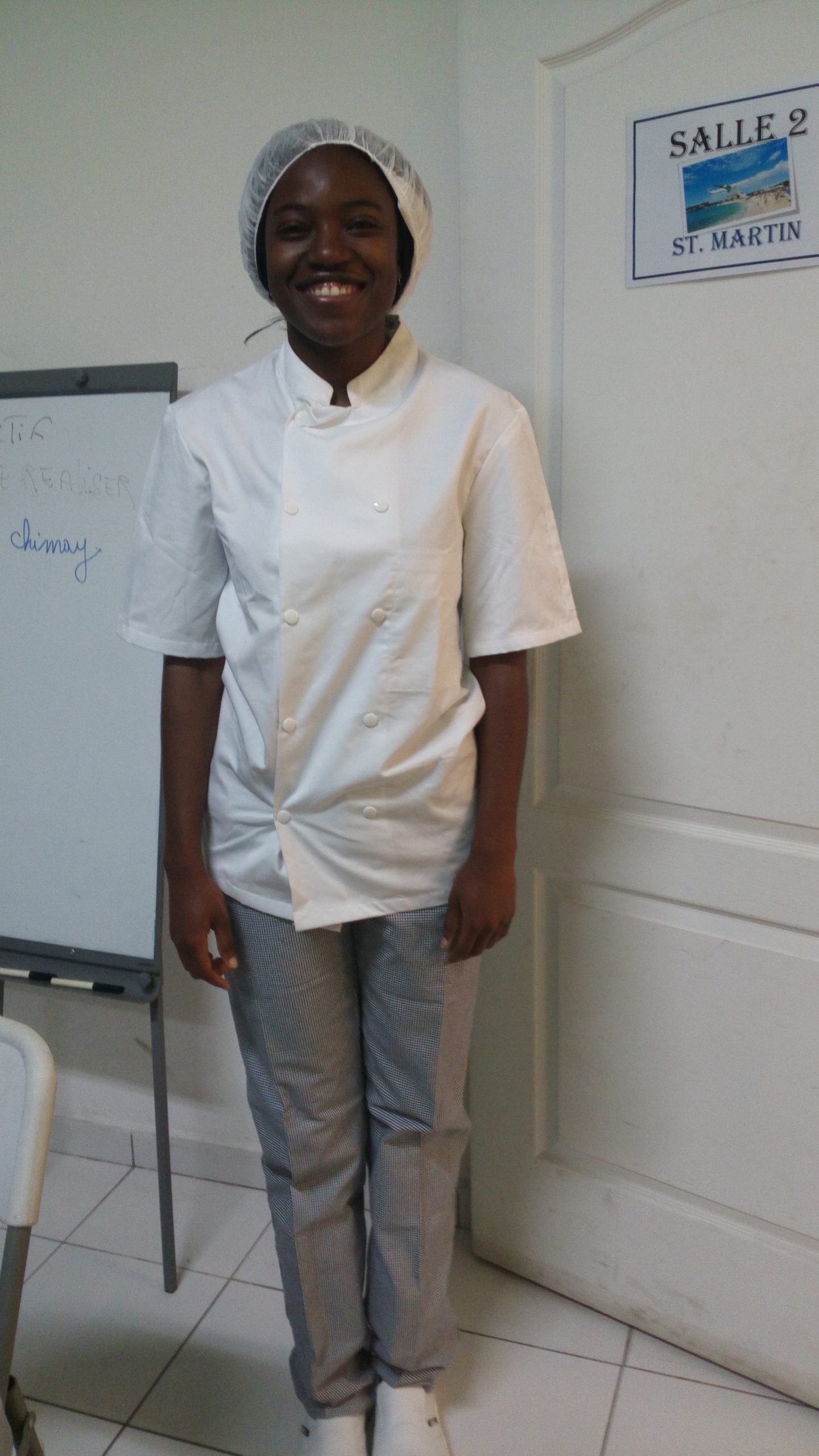

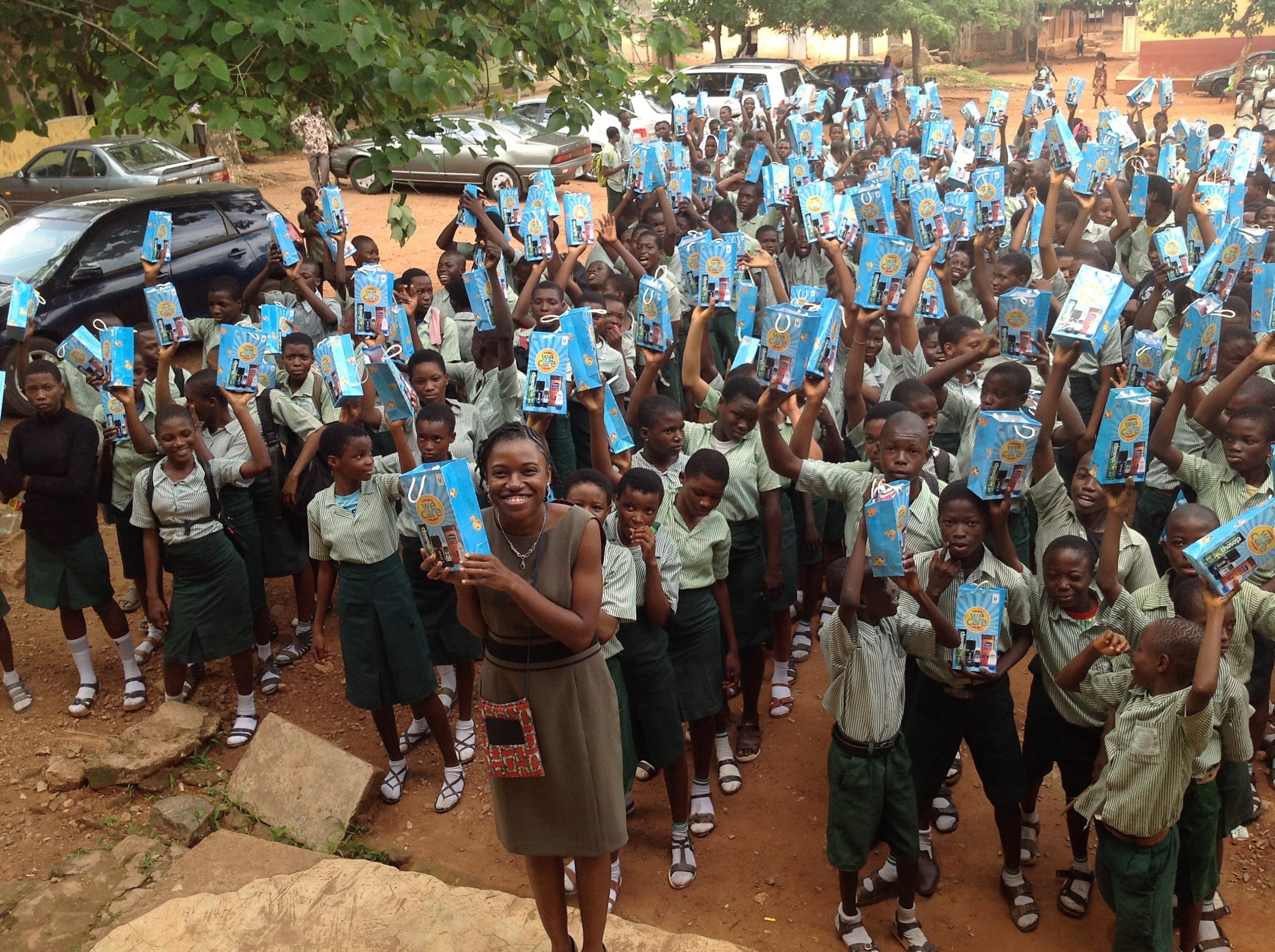
Could you please share with us how your experience and your background led to you writing the proposal for ARISE&WIN, as well as your role on the ARISE&WIN project through the years?
I got an email around the end of January 2022 from the Principal Investigator, Professor Olayinka Omigbodun, while I was in Cambridge. I had recently completed data collection for my PhD and had gone back to Cambridge while doing my PhD to write up my data. I’d also recently fallen pregnant, so I was in the middle of morning sickness and not feeling so great. But anyway, she sent me this email that she had received from her colleague, Professor Iyer in Canada, about an opportunity to develop projects focused on helping women recover from the aftermath of the pandemic, specifically helping them recover both health-wise and work-wise. Immediately, I saw the project and the focus of work, I was interested because it aligned with my research interests in employment issues and how to create more and better employment opportunities for young people in Africa. I’d also just returned from collecting data. I’d been talking to self-employed young people just after the pandemic. So, for example, in Ibadan, Nigeria, there was a curfew, but also people stopped partying, which self-employed workers depend a lot on to make their income. It’s only when people go out that they do their hair and sew their clothes, and so on. So I’d already talked with a lot of them, and seen the impact of the pandemic on them. In Ghana, there was a full lockdown in Kumasi, where I did my research. Some of them had completely shut their businesses. So, there was this opportunity to do an intervention, which is also something that I’d always been interested in doing, so I’m not one of those people that really believe in research for research’s sake. At the beginning of my PhD, I knew I wanted to do something policy-focused, but I was kind of discouraged because it was too complicated to do. So the focus was more on doing observational research, which is fine, and I mean, that’s what we’ve built up on in the ARISE&WIN project, but I knew that I didn’t just want to collect data for data’s sake. I’m not interested in just describing the world. I’m interested in actually contributing to making the world a better place. So this really presented the perfect opportunity, because the proposal was for action-oriented research. So we started meeting with Professor Srividya Iyer of McGill University, Canada. She also brought on Dr. Aarati Taksal as our research coordinator. We brought on Oluwatomisin Owoade (Abeni Prints), a self-employed woman, for her experience and perspective. The Ministry of Women Affairs came on, as well as other experts on the team. And that’s how the proposal developed. We submitted the proposal to the IDRC (International Development Research Centre, Canada), and we were really fortunate to get funded. I never knew it would grow and become something like this. It’s been really nice to see how the project has grown and brought on other people. Everybody has contributed immensely to what it has grown to be now. I’m really happy.
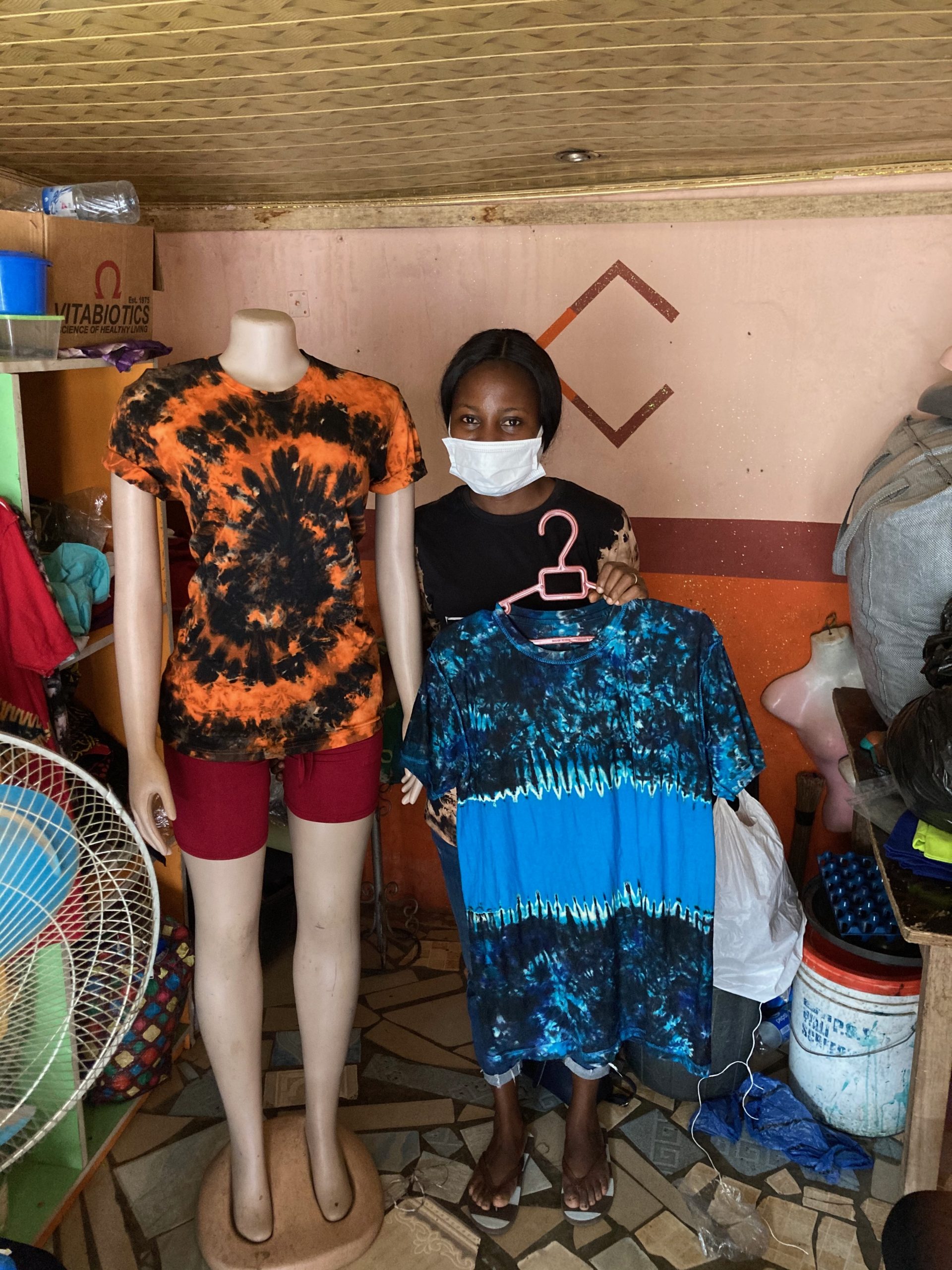
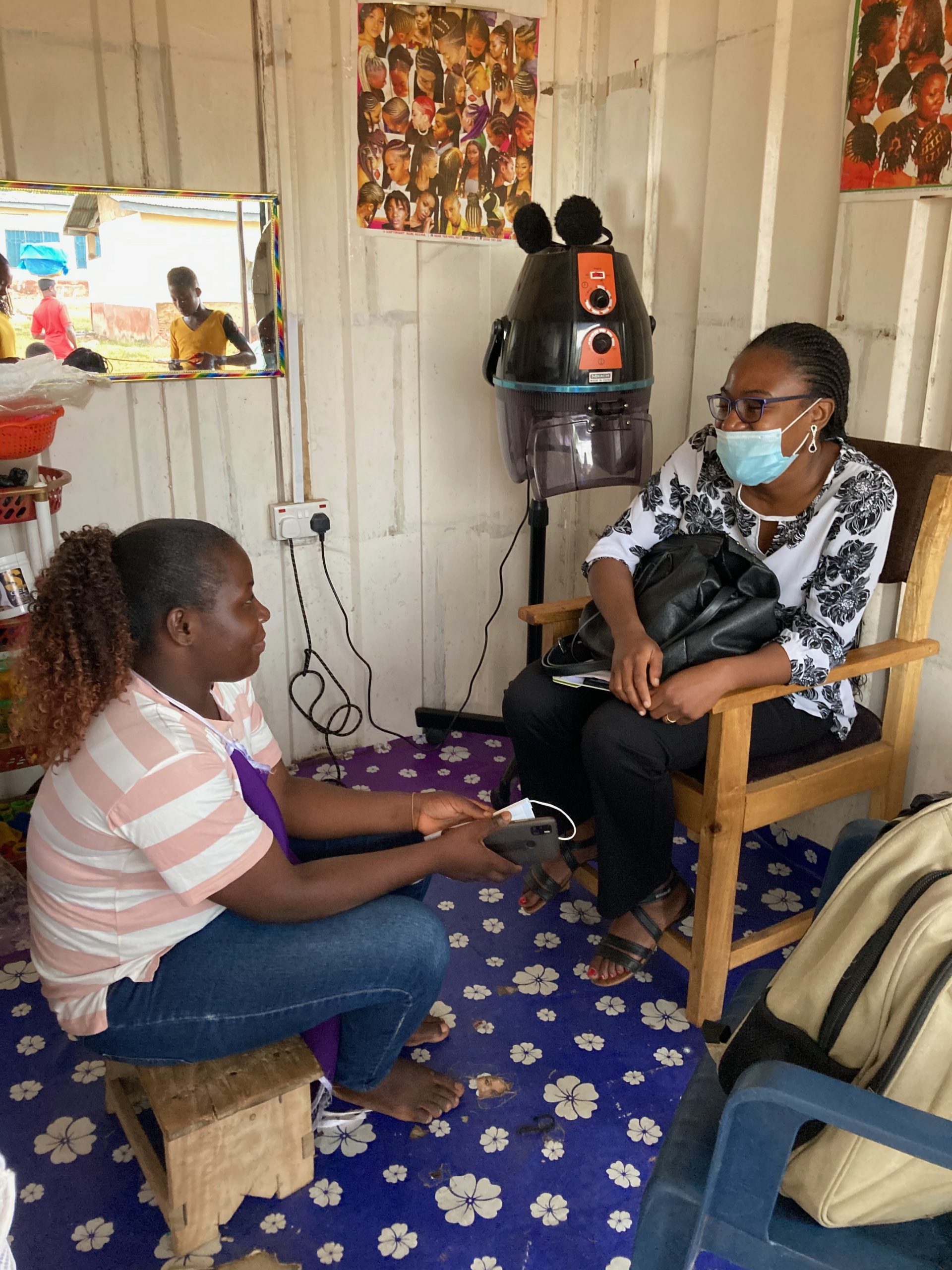
That’s interesting. Are there any particular areas of the ARISE&WIN project that interest you or that you really enjoy working on?
Oh, that’s hard. It’s like saying, Oh, which of your children do you like? (laughs)
I like every aspect. I think that’s what I really like about the project, the fact that you’re not boxed into a particular corner, which is something that I’ve wanted all my life. You know how I’ve been jumping from physics to French to literature to economics, so I get to do that on ARISE&WIN. So today, if I’m tired of doing statistics, I can go and start analysing qualitative data, or I can work on our communications and do digital storytelling. So that’s another reason why I really love this project, the fact that it’s multidisciplinary.
So yes, I’ve loved every aspect of the project, but I think that, above all, what I’ve enjoyed about the project is the fact that we’ve used co-production. The role that the self-employed women have played in this project is invaluable. I mean, I don’t think there’ll be any intervention without them, because they have basically developed this intervention, we’ve just supported them. Being able to do something in the real world has been a dream come true for me, and I hope to be able to do this for many years to come.
You mentioned earlier that you are passionate about youth employment. Do you have any stories that you’ve come across in your research, whether working with ARISE&WIN or prior to that, that push you to continue in your journey?
It’s hard to pick one specific story because I feel as if every story has just been unique. I’m really glad we’ve been able to do qualitative research and not just quantitative research. Even for my PhD, I interviewed about 59 self-employed young people, both men and women and every story was different. Some are at the bottom of the ladder, and some just have a shop on the side of the road but you can see that desire to make a better life for themselves, that desire to do something with their life and many times they don’t have the support to do that, which is something that really motivates me. How can they be better supported? Perhaps they need a better job, a job that’s more value adding etc. It’s been great interviewing people that are doing really creative things. I remember interviewing a fashion designer who mentioned how, in the aftermath of COVID-19, she measures many of her customers over WhatsApp. Or even meeting Abeni Prints in the field. That’s Oluwatomisin Owoade, who helped to develop the concept for ARISE & WIN. Seeing the kind of creative work she’s doing with traditional fabrics is great. So I think for me, yeah, each story has been unique. There’ve also been tough stories. I remember interviewing a young lady baker who just had a baby and had to return to the bakery two weeks after having her baby. Two weeks after having my baby, I was so weak. I wasn’t even myself. So I can’t imagine not just having to leave your baby at home, but then having to come to work. She had taken loans, and she had to keep on making money to be able to pay back the loans. Not to mention, a lot of her staff had left after she had her baby. During the interview, she began to cry, and it broke my heart.
All those different stories have really motivated me about what role I could play to make people’s lives better. And I think that would look like different things for different categories of young people. For some it’s providing them with better skills, for some, it’s providing them with financial support, and for some, it’s providing them with mental health support. So there’s no one-size-fits-all solution, but being able to meet these different people and see their stories of creativity and perseverance really motivates me to continue to work in this space.

There’s a lot of talk about mentoring in the academic space. Is this something you do or are interested in doing? What advice would you give a younger version of yourself based on your experience as an academic/researcher?
I’m still an early career researcher (laughs), so I need mentorship myself, and I’m grateful for the mentorship I’m receiving on the ARISE&WIN project from the Principal Investigator, who’s amazing, from the other consultants who are ahead on the project, and even from the ARISE&WIN staff. I mean, you guys teach me so much. So I’m still learning, still a work in progress. Thank God. In terms of giving back, whenever I have the opportunity to pour into others, I jump at it, whether through supervising people’s projects or just providing advice to people who are trying to further their education. I mean, it’s something I care a lot about.
In terms of advice, I would tell a younger researcher: run your own race. It’s very easy in research to look around and see what other people are doing, and it can be quite competitive, but God has deposited gifts and talents in each and every one of us. Everybody has something they’re good at, something that they are unique at, so focus on honing your craft and being patient. Realise that Rome was not built in a day. It takes a while to build something, to build a career, to build a life. And so be patient, knowing that you have something that you have to offer, and just keep at it. With persistence and perseverance, there’s very little that one can’t achieve.

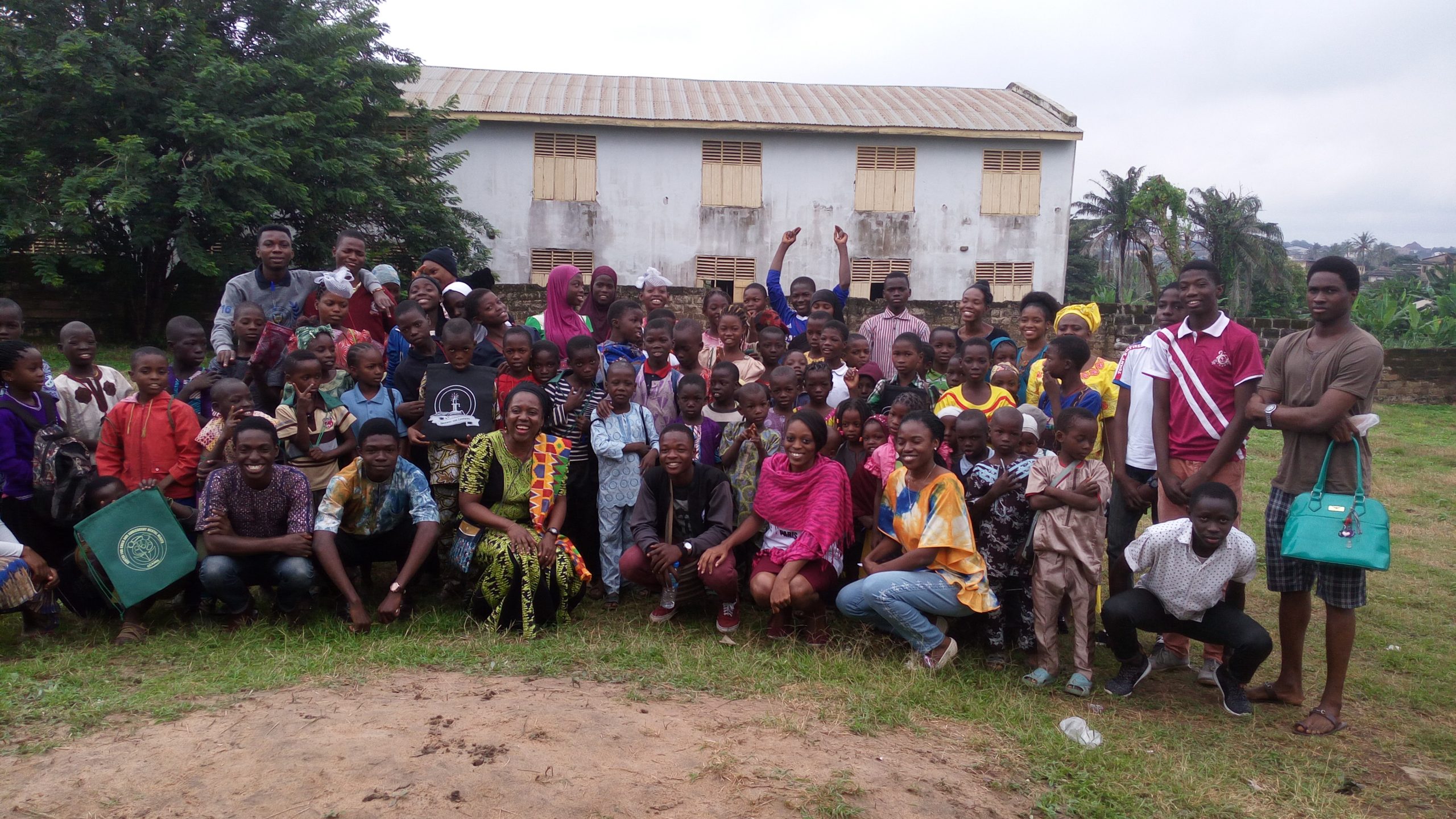
For our final question, could you share with us a little bit of your life outside of the professional context? Earlier, you mentioned having a baby. How has childbirth and raising your daughter affected you?
When this [ARISE&WIN] proposal started, I was actually pregnant with my daughter. I had her a few days before it was announced that we had received the grant. So it’s like she’s grown up with the project. In a sense, there are two babies I’ve had at the same time. Before I had my daughter, I used to be able to do hours and hours of work. I could plan my time. Now she plans my time for me. So it’s definitely challenging getting things done. But I think it gives me a lot of perspective in realising that my life is much more than just work, which is good. I’m glad my life is not just my work. I’m blessed to have such a loving and beautiful family. I also think having my daughter helps me empathise better with the women we work with. As a young woman of childbearing age, you can feel as if you are being pulled in 10,000 different directions. So I think having that experience too is a great privilege, but it also makes me think of ways that we can make the workplace and careers in general more friendly towards women, because women have so much to offer if given that opportunity and flexibility, to be able to achieve those things.
Thank you so much for your time, Dr Kusi-Mensah
Thank you so much for having me.


